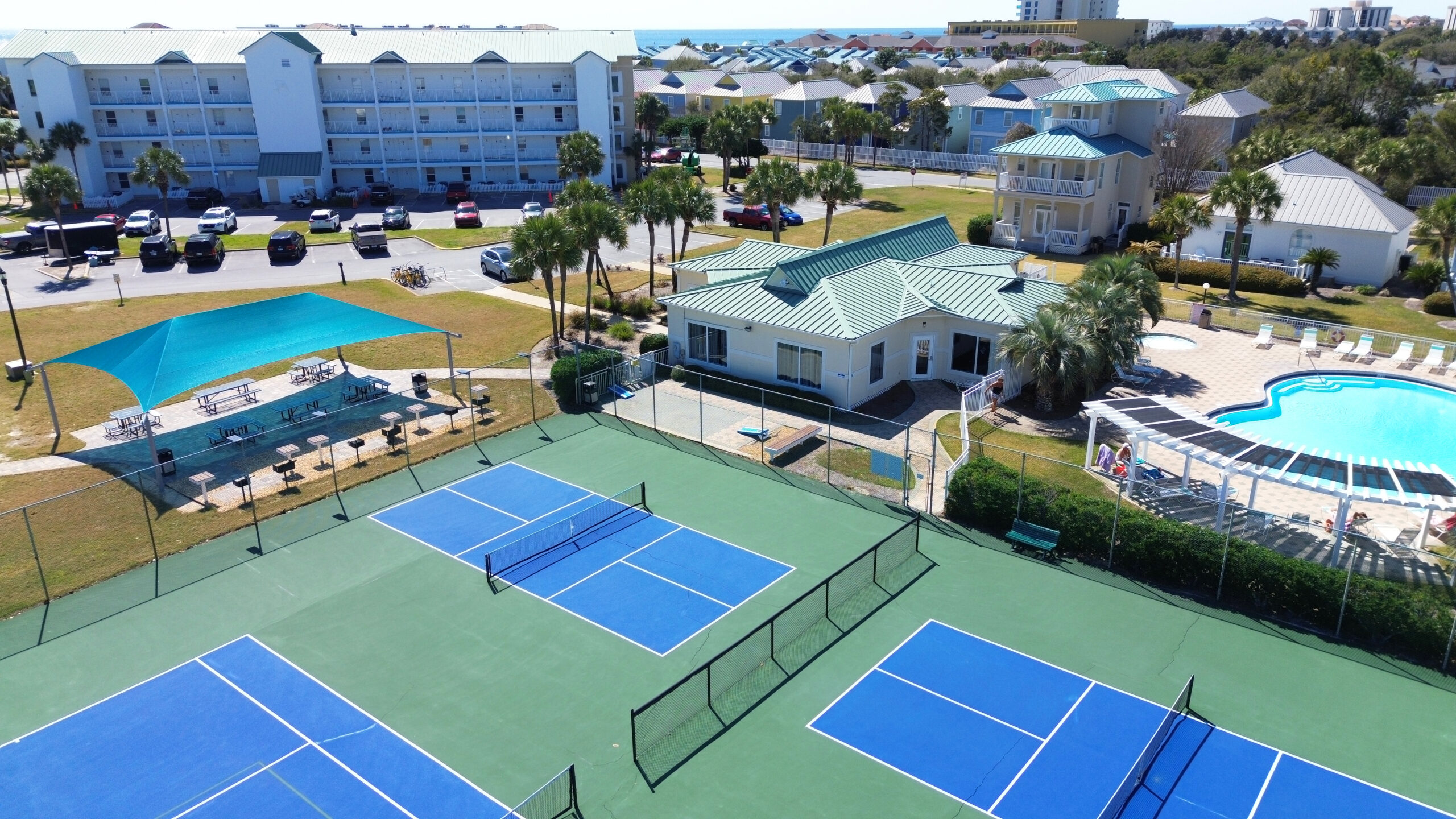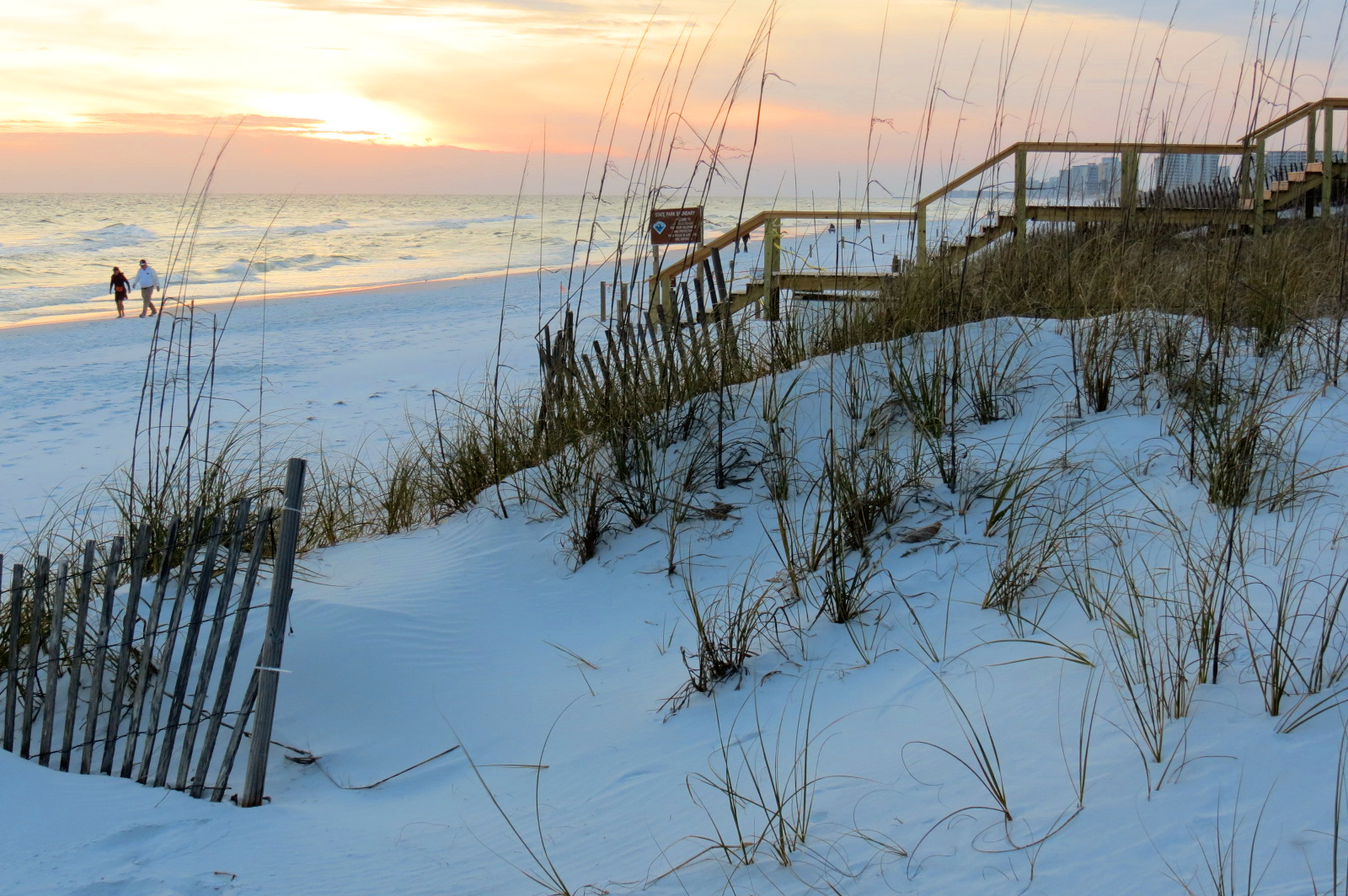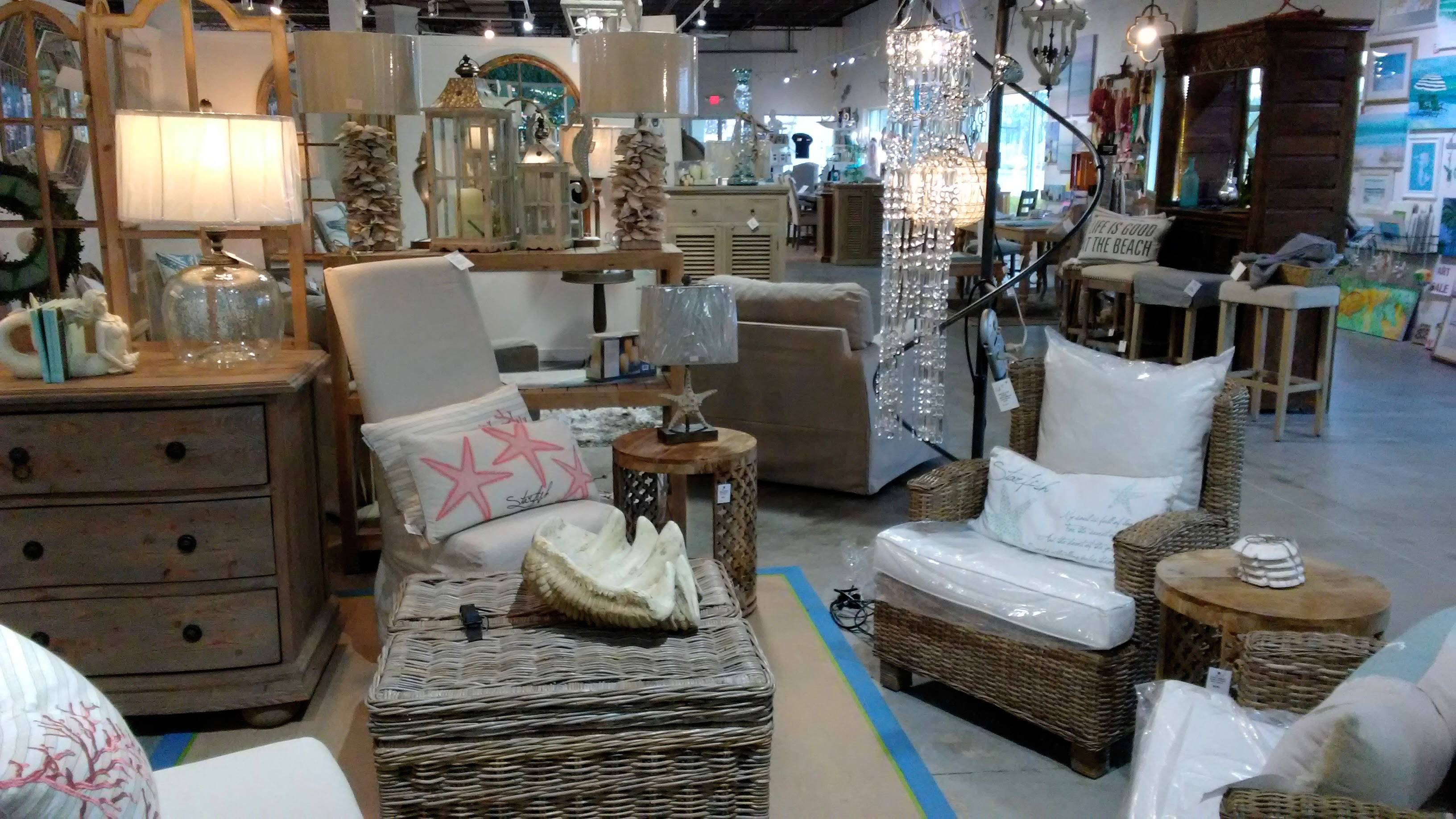Florida Vs. Arizona
A Comparison of Weather, Cost of Living Index and Ease of Travel by Vehicle
Let's begin by addressing the obvious. It makes the most sense that if your primary home is on the West Coast that you choose a snowbird community that is also on the West Coast. Right? Investing yourself in an area will be a long term pursuit if you choose wisely and getting there is a huge consideration of where to go. If unsure, then try out different options and see what works best. I highly doubt most snowbirds will repeat a trip from say, Indiana, Michigan or Ohio to Arizona more than once or twice. It's a long, multi-day drive. I'm not a gambler, but if I was, I would put high odds on what I refer to as the big slide. Most snowbirds slide south to their winter destinations.
My region in Northwest Florida primarily attracts people from the Northern Midwest states with a sprinkling of other areas mixed in. Most of my friends and acquaintances drive south on Interstate 65 all the way to our panhandle community. The last thing I want to do is spend more time on the road trip than absolutely necessary, especially with a dog on board.
If an individual or couple does not have pets or a lot of absolutely necessary belongings, flying is a possibility. But, there's more than meets the eye with that and unless you have no other option, such as a medical condition or choosing Hawaii for your winter destination, a road trip makes the most sense for all of the snowbirds I've ever encountered.
Traveling to your snowbird community is a major factor, but the cost of living and weather are also significant. More than one conversation with future snowbirds has taken place about "Which is better?" types of scenarios. This post is the first of several that will discuss "Which is better?" of two states. Florida is the long recognized gold standard of snowbird destinations. It is the king of the country for popularity attracting seasonal residents such as snowbirds. However, it is not the only option and for many, it's not the best option for their own personal circumstances and needs.
Here I will briefly provide the facts of three topics: weather, costs and ease of travel comparing Florida with Arizona. As always, weigh everything carefully and do your own research. The general information provided here is for a basic overview of what to expect and not intended to be specific for my readers.
Which is Hotter? Florida or Arizona?
Florida!
Florida is the number one hottest state in the US with an average temperature of 73 degrees Fahrenheit in 2024. Arizona is ranked number eleven at 62.5 degrees Fahrenheit in 2024. In-between are Louisiana, Texas, Hawaii, Mississippi, Georgia, Alabama, South Carolina, Arkansas and Oklahoma. Alaska is the least hot with an average temperature of 27.8. Winters in Florida are mild and summers are hot and humid. July is the hottest month of the year in Florida. Temperatures in Arizona in June, July and August average 100 degrees Fahrenheit in Phoenix, but are more mild in other parts of the state. Some parts of Arizona have snow in the winter.
Sources: Climate at a Glance, StateWide Mapping - National Centers for Environmental Information
Annual Weather Averages: Hawaii - Holiday Weather
Humid heat always makes temperatures feel hotter and more stifling because the high moisture in the air makes it difficult for sweat to evaporate from human skin. However, humid temperatures are generally better for sinuses and can decrease symptoms of asthma and allergies. In a dry climate, you may sweat more than in humid heat, but may not notice because the moisture evaporates from skin more quickly. It is easier to become dehydrated in dry climates.
Which is Sunnier? Florida or Arizona?
Arizona!
Although Florida is known as the "Sunshine State," Arizona is by far the top state in the US for sun exposure and has the highest percentage of sunny days at 85% and an average of 193 clear days per year. Arizona's average number of 3,806 sunny hours per year is followed by Nevada and New Mexico respectively with 79% and 76% to round out the top three. Data was measured in Tucson, Arizona located on the southern border.
Florida has an average of 66% sunny days per year and an average of 101 clear days and 2,927 sunny hours, making it ninth of the states in the US. Data was measured in Tampa, Florida located on the Western Peninsular side of Central Florida. In-between Arizona and Florida for sunny days in descending order are: Nevada, New Mexico, Colorado, Hawaii, California, Oklahoma and Wyoming. Alaska has the least number of measured sunny days at 41%.
Which is More Intense? Florida or Arizona Sun?
Arizona!
The UV index is a measure of the strength of ultraviolet (UV) radiation from the sun. Arizona and Florida both have very high UV rays and are each rated as a "ten," however, Arizona edges out Florida for highest with 3,728 vs. 3,636 average daily UV Irradiance 2015. Other states with a ten rating for UV rays are California and Nevada. With the highest score of 11, Hawaii is the state closest to the Equator and thus has the most intense UV rays. Alaska is the lowest with a score of one.
Skin cancer, premature aging and other health problems are all linked to prolonged UV exposure of the sun. Precautions such as using sunblock and avoiding sun and UV exposure should be taken to lower the risk of sun-related health issues.
- UV Index values shown are averages for the noon hour. The UV Index at any given time and place may be higher or lower depending factors including the time of day, cloud cover, and altitude.
Source: EPH Tracking
Which is Cheaper? Florida or Arizona?
Florida!
Although the states of Arizona and Florida are slightly more expensive than the national average, Florida's cost of living index edged out Arizona. Arizona's Cost of Living Index is 111.5 and Florida's score is lower at 102.8. Information included here is the most current "Composite Cost of Living Index 2024 Annual Average" published by the Missouri Economic Research and Information Center.
For comparison, the State of Hawaii has the highest cost of living index with a whopping 186.9 and the state with the lowest score for 2024 is West Virginia at 84.1. My home state of Indiana is a reasonable 90.5 which is similar to Michigan's 90.4 and Iowa at 89.7. Other cold weather Midwestern states have scores as follows: Wisconsin, 97.0; Minnesota, 95.1; Illinois, 94.4; Ohio, 94.2 and Missouri, 88.7.
Northeastern states are all very high cost of living scores as follows: Massachusetts, 145.9; Washington D.C., 141.9; New York, 123.3; Maryland, 115.3; New Jersey, 114.6; Vermont, 114.4; New Hampshire, 112.6; Connecticut, 112.3; Rhode Island, 112.2; Maine, 112.1; Delaware, 100.8 and Pennsylvania, 95.1.
Northwestern states range from a high of California, 144.8; Alaska, 123.8; Washington, 114.2; Oregon, 112.0, Utah, 104.9; Colorado, 102.0; Idaho, 102.0; Nevada, 101.3; Wyoming, 95.5; Montana, 94.9; Nebraska, 93.1; South Dakota, 92.2; North Dakota, 91.9 and Kansas, 87.0.
Source: https://meric.mo.gov/data/cost-living-data-series
Which is Easier to Travel by Vehicle? Florida or Arizona?
Florida!
The short answer is what major North/Southbound artery can you access without too much trouble? If you are located in the Western half of the US and Canada, Arizona is most logical for your road trip destination. If you are coming from the Eastern half of the US and Canada, Florida is better. The population in the middle US and Canada have the biggest decision to make and it will likely be based on your own personal circumstances.
From East to West, this is the rundown of the major North/South arteries and where you'll end up. Note: There is no direct North/South interstate that travels directly to the heart of Arizona! To get to Flagstaff, Prescott, Sedona, greater Phoenix, Tucson and other popular destinations, take Interstates 25 or 15 and then cut over to where you want to be in Arizona. Because of the lack of a direct North/South interstate to Arizona, Florida takes the win.
Interstate 95: Carolinas and Eastern Peninsular Florida
Interstate 75: Georgia, Central and Western Peninsular Florida
Interstate 65: Northwest Florida and Alabama
Interstate 55: Louisiana and Mississippi
Interstate 45: Eastern Texas
Interstate 35: Middle Texas
Interstate 25: Western Texas and New Mexico
Interstate 15: Northwest Arizona, Nevada and Southern California
Interstate 5: Southern California



